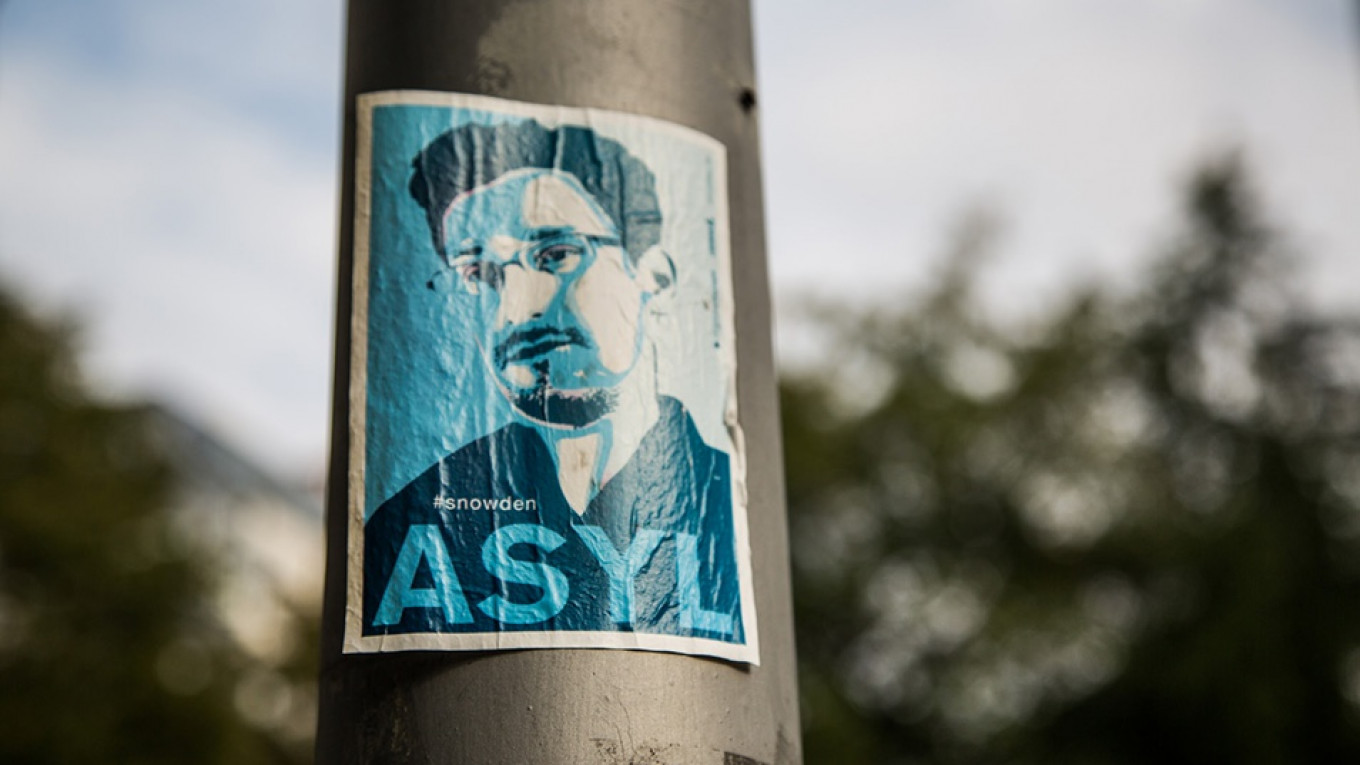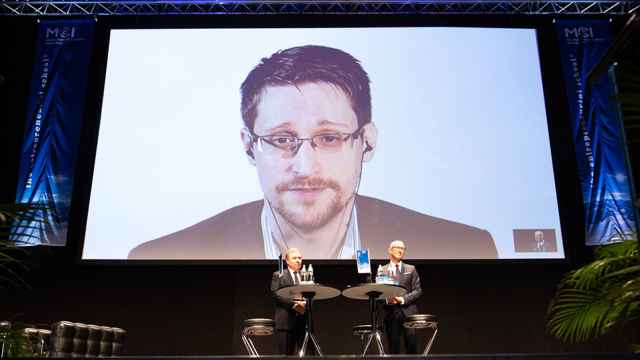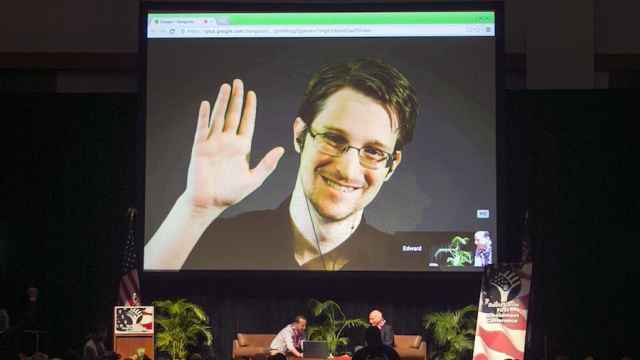Former security contractor and whistleblower Edward Snowden has said he does not feel safe living in Russia but feels proud about his role in revealing massive U.S. surveillance programs.
Russia granted Snowden asylum in 2013 after he exposed mass surveillance carried out by U.S. intelligence agencies around the world. He has led a reclusive life after moving to Russia, where his residence permit was extended “for another couple of years,” the Foreign Ministry spokeswoman said last year.
Snowden risks facing extensive prison time in the United States, which charged him with theft of government property, unauthorized communication of national defense information and willful communication of classified intelligence.
“As for the future in Russia and what will happen there, I can’t say I’m safe,” Snowden said Thursday.
“But the real question is: Does it matter?” he said via satellite at an event organized by the University of Innsbruck in Austria. “I didn’t come forward to be safe.”
“If I wanted safety, I’d be sitting in Hawaii right now, making a lot of money, spying on everyone.”
The former National Security Agency (NSA) contractor conceded he “may have to spend the rest” of his life in exile.
“What that means is I can go to sleep at night not worrying about tomorrow,” Snowden told the applauding audience.
Addressing critics “suspicious about the fact that I’m in Russia even though I never chose to be in Russia,” the whistleblower reiterated his assertion that he has “no connection” with the Russian government.
“Russia is not my home; Russia is my place of exile,” he added.
Reuters contributed reporting to this article.
A Message from The Moscow Times:
Dear readers,
We are facing unprecedented challenges. Russia's Prosecutor General's Office has designated The Moscow Times as an "undesirable" organization, criminalizing our work and putting our staff at risk of prosecution. This follows our earlier unjust labeling as a "foreign agent."
These actions are direct attempts to silence independent journalism in Russia. The authorities claim our work "discredits the decisions of the Russian leadership." We see things differently: we strive to provide accurate, unbiased reporting on Russia.
We, the journalists of The Moscow Times, refuse to be silenced. But to continue our work, we need your help.
Your support, no matter how small, makes a world of difference. If you can, please support us monthly starting from just $2. It's quick to set up, and every contribution makes a significant impact.
By supporting The Moscow Times, you're defending open, independent journalism in the face of repression. Thank you for standing with us.
Remind me later.






